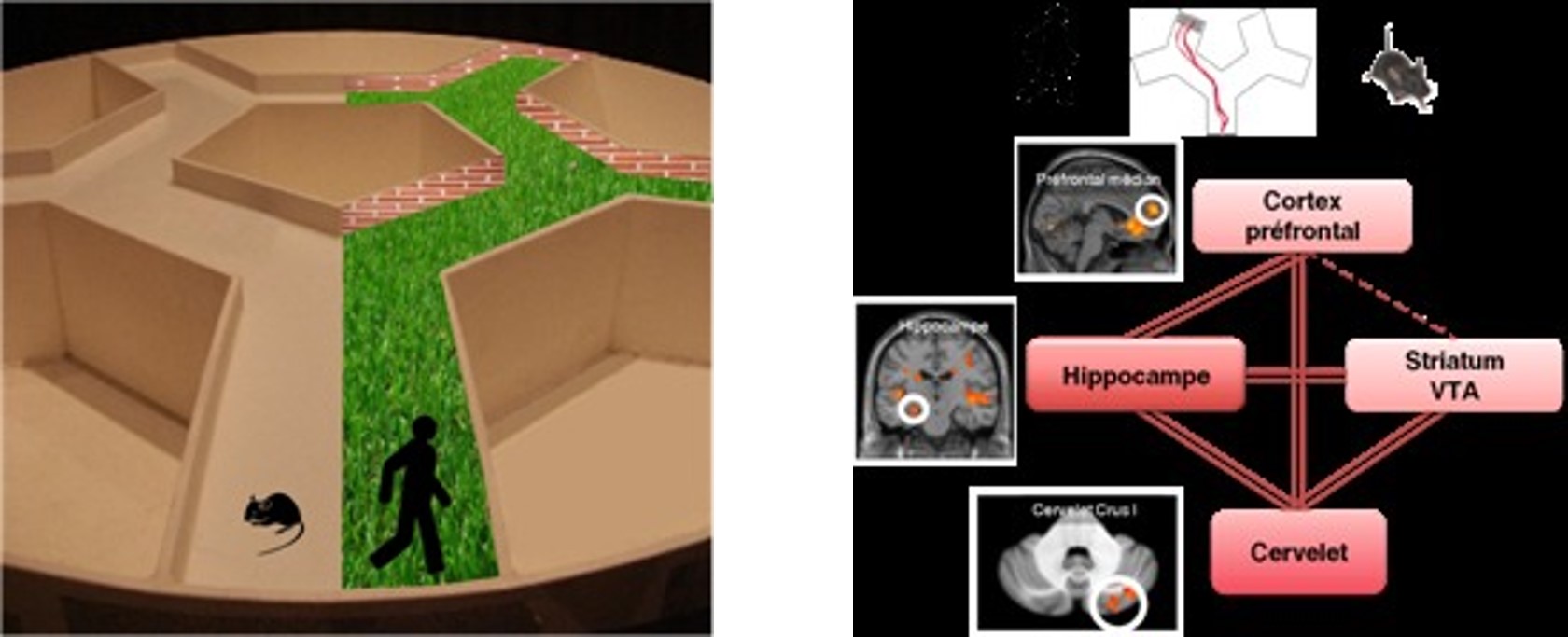Winners of the BNA Credibility Prizes 2024
17th April 2024
External Event - 28th Nov 2019
DATE AND TIME
Thu 28 November 2019
13:15 – 14:15
LOCATION
Ground Floor Lecture Theatre
Sainsbury Wellcome Centre
25 Howland Street
London
W1T 4JG
Abstract:
What is the relationship between space navigation, learning and memory? How, based on a multitude of sensory signals from the outside world or generated by our own movement, does the brain organise the brain network necessary to generate behaviour adapted to a complex situation? Can navigation paradigms be used to assess memory disorders? I will address these questions by presenting recent discoveries on neurophysiological mechanisms and the diversity of cortical and subcortical networks involved in spatial memory. I will illustrate the implication of sensory-motor processing by the cerebellum for the coding of space on the one hand and the importance of the cerebellum-hippocampus interaction for sequence-based navigation on the other hand. Finally, I will discuss the importance of assessing navigation function to detect memory disorders related to normal or pathological aging, particularly in Alzheimer's disease.

The use of aquatic or virtual reality labyrinths such as the Starmaze (left photo) allows us to evaluate spatial learning and memory capacities in both humans and rodents. The diagram on the right illustrates the importance of the cerebellum-hippocampus interaction for the memory of a path. In red is represented the network of brain structures involved in learning a sequence using cellular imaging in mice associated with a mathematical model. In humans, the use of functional magnetic resonance imaging reveals the involvement of the same brain network centered around the hippocampus-cerebellum interaction.
Biography:
Laure Rondi-Reig is Director of Research at the CNRS (National Center for Scientific Research) and Director of the Scientific Council at the Faculty of Science and Engineering of Sorbonne University. She obtained her PhD in Neuroscience on the role of the cerebellum in motor learning and spatial memory at Sorbonne University and then completed a postdoctoral fellowship at the Massachusetts Institute of Technology (MIT) in the laboratory of Susumu Tonegawa.
Laure Rondi-Reig is a recognized expert in the study of memory systems and space navigation. Her research led to the first demonstration that a defect in the processing of sensory-motor information by the cerebellum impacts our memory of places. She also invented a behavioural paradigm, the Starmaze. This digital application makes it possible to dissect the mechanisms of memory and to evaluate its dysfunction by revealing, for example, that the sequence-based memory is specifically affected in Alzheimer patients. She has received several prize included the CNRS bronze medal, the FRM-Iagonitzer prize for her work on navigation and aging and the innovation prize for the Starmaze development. At Sorbonne University, she's the head a lab studying the neural bases of navigation using a translational approach in mice and humans.
Laure Rondi-Reig also plays a structuring role in the scientific community at national and international level. She and one of her colleagues created the France Cerebellum club, of which she is the president. This club allows an excellent representation of French scientists during the Gordon conference on this scientific theme. She also contributed to the creation of the Inav (Interdisciplinary Navigation symposium), which brings together every two years the world's leading scientists in the field of spatial cognition.
No need to book, just turn up!